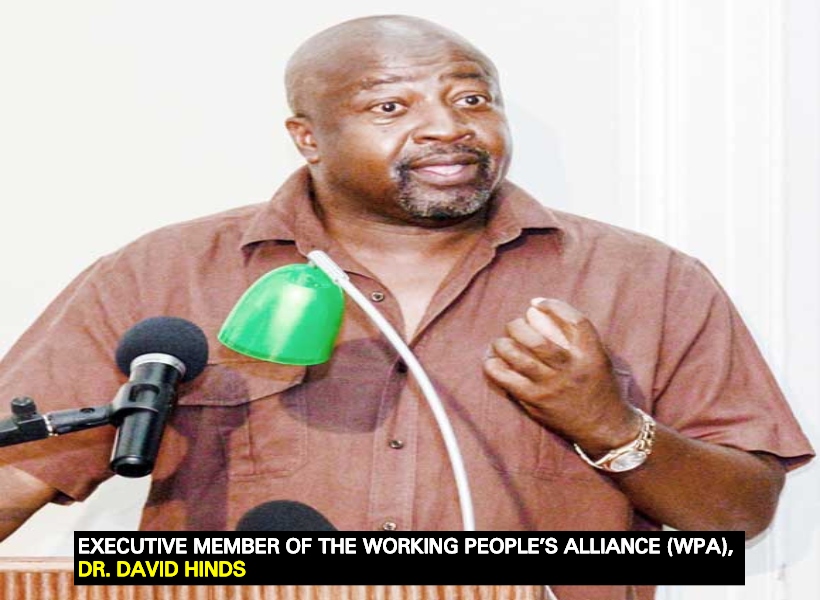Executive Member of the Working People’s Alliance (WPA), Dr. David Hinds, is calling on the government to reform Guyana’s antiquated campaign financing legislation.
Speaking with the Guyana Standard this morning, Dr. Hinds recalled that earlier this year, President David Granger had pledged to address this matter. The political commentator said that while one would want to take the Head of State at his word, his behaviour signals a completely different intention.
Dr. Hinds said, “Our country is attracting a lot of interest from insatiable businesses that are in some cases, global powerhouses. And it is imperative that we regulate big money before the elections in 2020. Many of these companies will want to pour money into the respective parties, which will then be used to buy votes. That is how it has been for ages with the People’s Progressive Party (PPP).”
The University Professor continued, “So we need to address this because the integrity of the votes is also at risk here. We need to ensure that the 2020 elections, and others to come, are going to be democratic, that they are going to be clean. If the APNU+AFC coalition does not address this then it is simply telling the nation that it is comfortable continuing the lawlessness that existed under the PPP.”
Dr. Hinds added that he is worried about the influence oil majors will have over the election process. Dr. Hinds said this despite ExxonMobil’s promised that it will not contribute to Guyana’s elections.
The newspaper columnist said, “Yes, they might have said that but what of their contractors and subcontractors? They can contribute in indirect ways. We cannot leave anything to chance.”
Further to this, Dr. Hinds said that campaign financing legislation should make elections a relatively low-cost activity and take dirty money and other suspect sources of financing out of the system.
He believes it parties should be mandated to disclose the sources of campaign funds and there should be stiff penalties if this is not adhered to. The columnist said, too, that there should be a cap on such contributions, especially from commercial sources and rich individuals.











